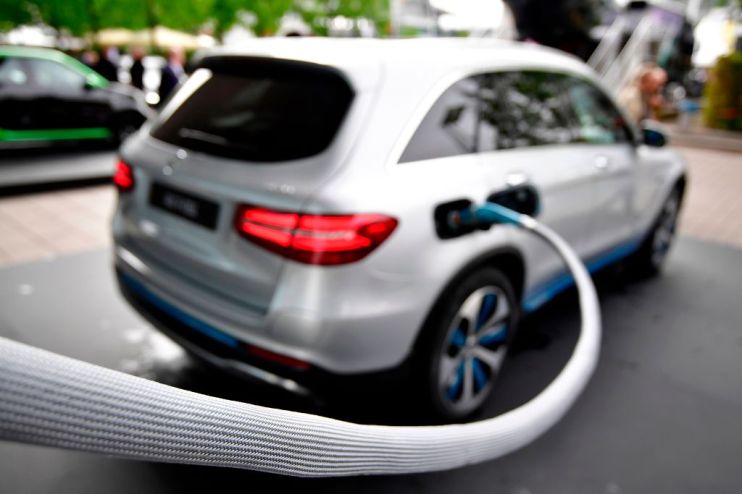Let hydrogen fuel our vehicles to a greener future

Almost exactly a year ago, the UK became the first major economy to sign into law an ambition to become carbon neutral by 2050.
Getting to “net zero” will be a monumental feat, and will require both behavioural changes and new technological solutions coming to market.
Such efforts are essential to protect against the worst effects of climate change. But they will also bring other societal and health benefits, such as improved air quality as we swap polluting factories, power plants, and vehicles for cleaner alternatives.
On the last of those – vehicles – the UK is in a peculiar position. Transport is now the single biggest contributing sector to our country’s greenhouse gas emissions, while at the same time being a primary culprit for polluting our air. Worryingly, it’s also a sector which includes parts of the economy that are some of hardest to decarbonise, which might explain why it has barely reduced its emissions at all in the last 30 years.
There are reasons to be optimistic that emissions from transport could soon begin to rapidly fall – the obvious lockdown induced effects notwithstanding. More and more of us are switching from gas-guzzling motors to clean and efficient electric cars — the latest government figures show that registrations for electric cars have gone from around 1,500 in 2010 to 90,000 last year, a healthy increase of nearly 5,700 per cent.
Yet despite this remarkable growth, it would be conceited to assume that we’ve cracked how to clean up every last vehicle on British roads today. Decarbonising small family cars, which on average only go eight miles per trip, is one thing; getting a 50-foot, 44-tonne articulated lorry to zero-emissions is quite another.
Indeed, working out exactly how to solve this challenge is the focus of a new report, published today by the Centre for Policy Studies.
Simply transferring the battery technology that enables personal cars to go green to bulkier vehicles won’t cut it. At present, batteries are heavy things. And while that’s not much of an issue in normal cars — which only require relatively few — the number of batteries necessary to power a vehicle the size of a bus or lorry would become prohibitively weighty.
What’s more, while electric cars might enjoy the luxury of a driveway on which to charge up over the course of several hours each night, that’s not going to be the case for bigger, commercial vehicles which need to be able to drain their fuel tanks, resupply in minutes, and get back on the road as soon as possible
Fortunately, a solution is already at hand — in the form of sustainably produced hydrogen, which for all intents and purposes handles just like petrol or diesel, only without the noxious, climate change-exacerbating fumes coming out of the tailpipe.
Hydrogen, therefore, could ensure that there is a secure pathway to net zero for those heavier vehicles for which electric batteries are probably never going to be suitable.
To that end, we call on the government to enact a series of reforms to allow hydrogen to compete on a more level playing field with other fuels, so as to incentivise the production of both the fuel and the vehicles which make use of it.
We also recommend the establishment of a cross-departmental hydrogen working group in the civil service to explore how hydrogen could help decarbonise sectors beyond transport, like domestic heating and industrial processes, with the findings being presented ahead of the UK’s hosting of COP26, now scheduled for late 2021.
The government’s plan to decarbonise the economy is commendable, and its favoured means of doing so — faith in technological innovation, not Extinction Rebellion-esque hair shirtism — is encouraging. In keeping with that mission, the government should draw on a suite of options to ensure that every sort of vehicle can get to zero emissions by 2050 — and give hydrogen the hearing it deserves.
The Centre for Policy Studies today publishes Driving Change: How Hydrogen Can Fuel A Transport Revolution.
Main image credit: Getty